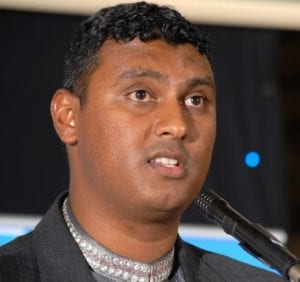Issued by the South African Institution of Civil Engineering
The South African Institution of Civil Engineering (SAICE) is not surprised at the findings of Auditor-General (AG) Terence Nombembe on the under spending of R172 million on the budget of the Gauteng Province Department of Roads and Transport as this does not only occur at provincial level; it is rife in national departments and in local authorities, if the AG’s audits are anything to go by. Gauteng MEC for Roads and Transport, Ismail Vadi, is justifiably concerned. However, blacklisting contractors/companies for non-compliance will not address the inherent void that exists in all three tiers of government’s technical departments, namely the fact that appropriately qualified, skilled and experienced civil engineering practitioners are few and far between, and the existing available expertise lies in the predominantly ageing pale males. Without these engineers who understand tenders and infrastructure and what the required skills and competencies are for the appointment of contractors, one can expect non-performance. Add to that inadequate oversight or management of projects, the recipe is for disaster. Pay attention to the skills at hand, not skin colour! Dr Martin van Veelen, 2012 SAICE president and the first president of the Federation of African Engineering Organisations (FAEO), states, “South Africa is blessed with a highly competent and experienced corps of engineering practitioners. It is one of the few countries on the African continent that does not need consultants from Europe or other countries to solve the challenges of a developing country. However, the centre of gravity of the accumulated wisdom lies in an ageing, predominantly white and male group of professionals. This is certainly not politically correct, but it is a fact. The country cannot afford to disregard this boon if the objectives of the NDP (National Development Plan) are to be achieved.” Those who have already retired or have been side-lined and who are still able to do the job, should be appointed to bridge this gaping hole, to keep developing South Africa’s infrastructure to make the NDP a reality while transferring knowledge to the younger civil engineering generation. At the beginning of 2012 he reported, “Between the three engineering infrastructure management departments of government (Water Affairs, Transport and Public Works) there are 89 engineers, who represent 1.6% of the civil engineers in South Africa. Of these, 81 are within the Department of Water Affairs, while the Department of Transport has only two. It should, however, be acknowledged that the South African National Roads Agency Ltd (SANRAL), which is responsible for the national road network, has 31 engineers on its staff. Other parastatal organisations, such as Transnet, Portnet and ACSA, are responsible for other aspects of the transportation infrastructure. Nonetheless, the number of engineers in government employ is alarmingly small. The age profile of engineers in central government employ shows a young workforce, with 50% below the age of 35, and only 29% over 49.” This situation has since deteriorated. It seems as if the situation is worse in provincial government and alarming in many local authorities as these are the people responsible for providing potable water, appropriate sanitation, road maintenance, etc. In many local authorities there is not even a single skilled technical person to run all these technical functions – no wonder communities are toyi-toying because of a lack of service delivery. In his column, Manglin Pillay, in “From the CEO’s desk” in the October issue of SAICE’s magazine ‘Civil Engineering’, remarks on MEC Vadi’s blacklisting: “We may debate that the general administration, political and economic climate is conducive to delinquent behaviour,with the tendering ruleswhat they are – I personally think that the best way to secure the worst service providers is by tendering.”As in this instant, it seems as if the supervisory role that should have been the responsibility of qualified and experienced civil engineering practitioners/project managers in the department’s employ, was non-existent – possibly because too few are in the service of the department? To solve this current unacceptable problem MEC Vadi’s department and the other tiers of government will have to address the HR procedures of appointing civil engineering practitioners adhering to strict employment equity and BEE requirements versus the need of the country for competent, appropriately qualified, skilled and experienced civil engineers. This lies predominantly in the group of ageing, pale males who can do the job and get South Africa out of the grip of sewage running down the streets, sanitation that is almost non-existent in various areas, towns and communities that are without water,let alone potable water for long periods, potholes that have an influence on farmers getting their produce to markets and the cost to the general public for replacing tyres and parts in their cars as they have no option but to travel on these roads!SAICE offers its assistance and expertise to MEC Vadi, and all tiers of government to find solutions for this dire situation. Civil engineering practitioners are, after all, solution finders. SAICE is at your service!
Issued by the South African Institution of Civil Engineering For more information, please contact Marie Ashpole Cell: 082 870 9229 Tel: 011 805 5947/8 Fax: 011 805 5971 E-mail: marie@saice.org.za www.saice.org.za






